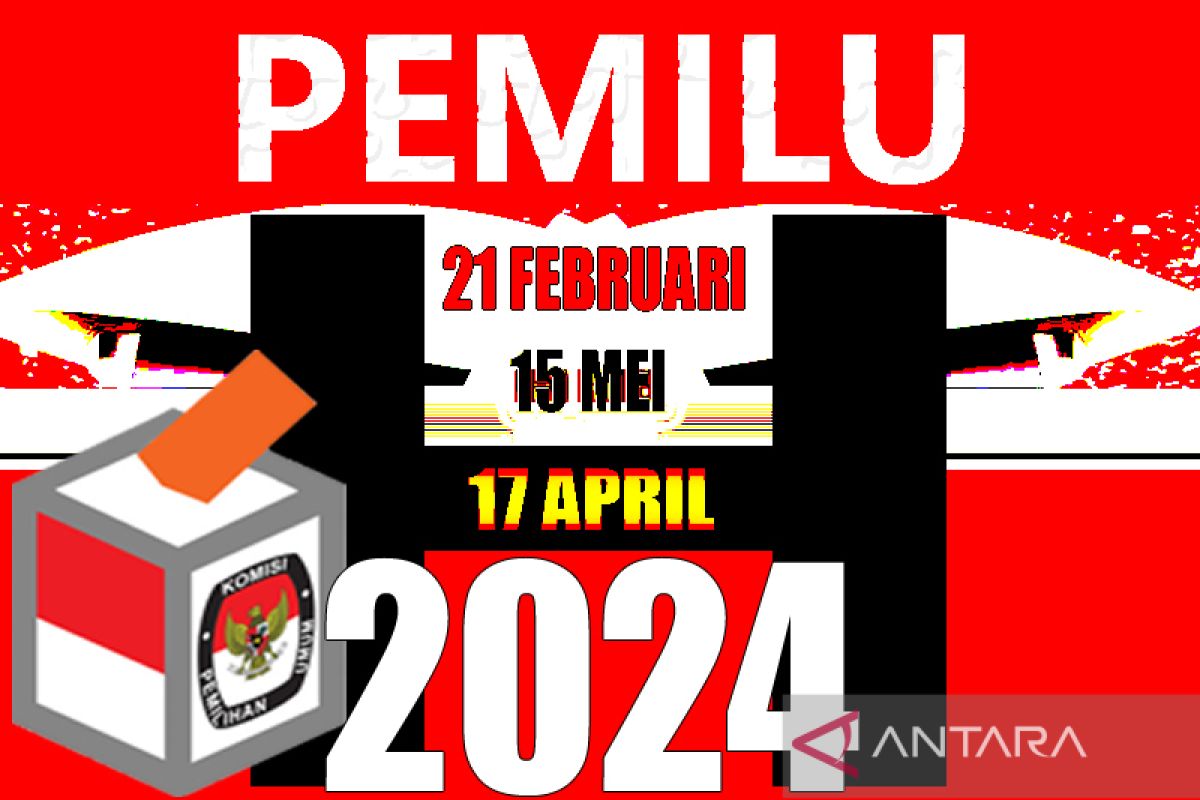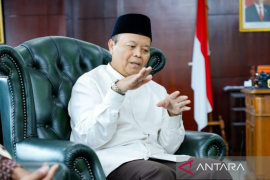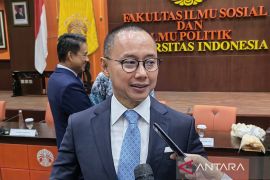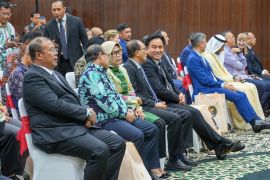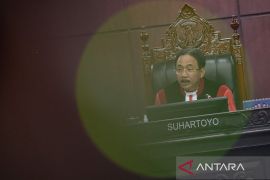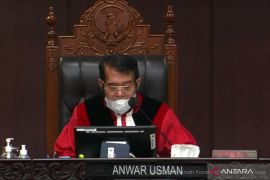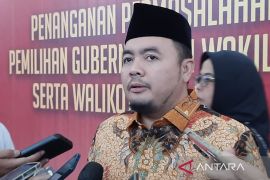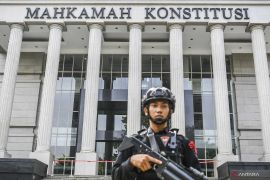It makes sense given that the general election is one of the most important events for a country such as Indonesia that adopts the presidential system.
The presidential system gives the highest executive power to the president. Both the nation and the government are directly led by a president that the people vote for through the general election.
Hence, the general election is the most crucial activity that encompasses various stages and regulations.
The existence of a 20-percent presidential threshold is one of the regulations that draws the public's attention as the 2024 General Election approaches.
Various political figures, such as Regional Representative Council (DPD RI) Speaker A. A. LaNyalla Mahmud Mattalitti, and civil organizations in the field of election and politics voiced their support for removing the presidential threshold.
Association for Elections and Democracy's (Perludem's) official Titi Anggraini noted that there are seven material test requests concerning the presidential threshold in the Constitutional Court.
These seven requests were submitted by individual citizens. There are also requests put forward by DPD senators.
Related news: Home Ministry evaluates implementation of 2021 village head elections
They deemed that the existence of a presidential threshold limits the number of presidential candidates and could potentially polarize the public as a result of a fierce political competition.
This happens especially when there are only two presidential and vice presidential candidate pairs that compete in the general election.
Thus, how does the presidential threshold affect the presidential system in Indonesia?
Forced Coalition
Indonesia is a nation that concurrently adopts the presidential and multi-party system. According to Constitutional Law Expert Bivitri Susanti, the combination of these two systems spells disaster.
This is especially when the number of political parties in Indonesia continues to increase instead of decreasing, such as the appearance of the People's Party and the Labor Party, as the 2024 General Election approaches.
The many parties competing in the general election pose a hurdle for a single party to win an election through a majority.
As a result, support for the president from the legislative branch will also be difficult to obtain.
Related news: BRIN presses for improving political literacy ahead of 2024 elections
In a multi-party system, the president usually obtains the majority of the legislative's support through party coalition.
However, since the presidential system allows the president to not be accountable to the legislative branch's authority and they cannot be fired by the legislative institution, this disincentivizes the formation of a coalition.
The presidential system allows the president to form a government without involving parties in the legislative branch.
This situation puts a strain on the relationship between the legislative and the executive branch that ultimately leads to a deadlock.
To handle this problem, Indonesia implements the presidential threshold to ensure support to the president in the parliament that prevents a deadlock within the government.
However, this strategy is not quite effective. The existence of a presidential threshold forces parties to build a coalition within a short period of time.
This coercion causes parties to build a pragmatical coalition just for the sake of receiving the candidacy ticket during the presidential election.
The negotiation occurs not based on the parties' ideologies, but rather based on pragmatical goals. Moreover, the parties' ideologies in Indonesia tend to mirror one another.
The presidential threshold allows the formation of a large coalition that eliminates negotiation on issues and results in the lack of policy alternatives in the House of Representatives (DPR).
Not only would it affect the dynamics in the parliament, but the presidential threshold also binds the presidential candidate to the parties' interest that prevents them from conducting programmatic transaction, Susanti noted.
In addition, cabinet members tend to come from coalition parties that results in the lack of professionalism while they conduct their duty.
Related news: Parliament sets simultaneous local elections date at November 27, 2024
Winning Threshold
Rather than maintaining the existence of a presidential threshold, Susanti offered an alternative solution in the form of a winning threshold or threshold to calculate who wins.
Quite akin to the presidential threshold, the winning threshold could also ensure the parliament's support to the president that wins the election.
However, the winning threshold does not limit the number of people who come forward to become presidential candidates, though it stipulates a minimum support requirement for a candidate who wins the election.
The meaning of presidential threshold in other presidential countries usually refers to the definition of winning threshold. This is caused by the irregularity of limiting candidacy based on votes.
In response to the concern over the large number of people registering themselves as presidential candidates, Susanti stressed that administrative and technical qualifications will be required to prevent this.
Related news: Public involvement key to nourishing electoral agencies: UI
The winning threshold allows presidential candidates with the potential to compete, which differs from the presidential threshold.
Susanti deemed that the presence of presidential candidates stifles competition by not only being disadvantageous for promising candidates but also for all Indonesians, as they receive candidates selected by political parties based on these parties' interest.
To this end, she pressed for the removal of the presidential threshold.
The Constitutional Court's decision concerning the material test on the presidential threshold became one of the verdicts that election enthusiasts are awaiting.
This decision will determine the political maneuvers from various parties in the future. In fact, it could also affect the political dynamics in Indonesia both before and after the presidential election.
Related news: Govt bolsters strategies as Omicron wave sweeps Indonesia
Related news: COVID-19 cases projected to increase in next few days: official
Translator: Putu Indah S, Fadhli Ruhman
Editor: Fardah Assegaf
Copyright © ANTARA 2022
